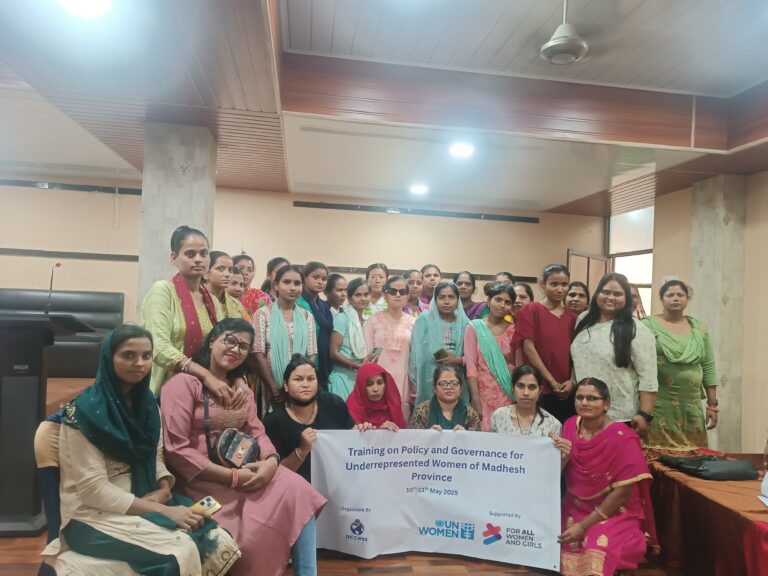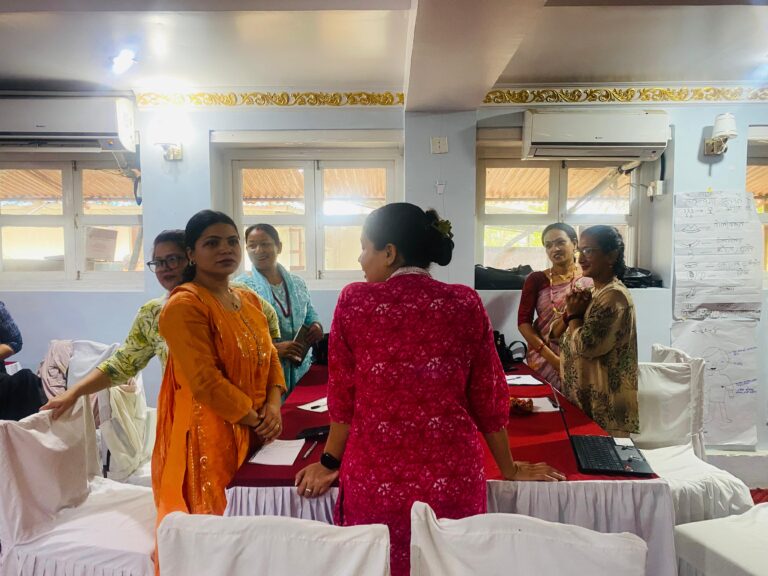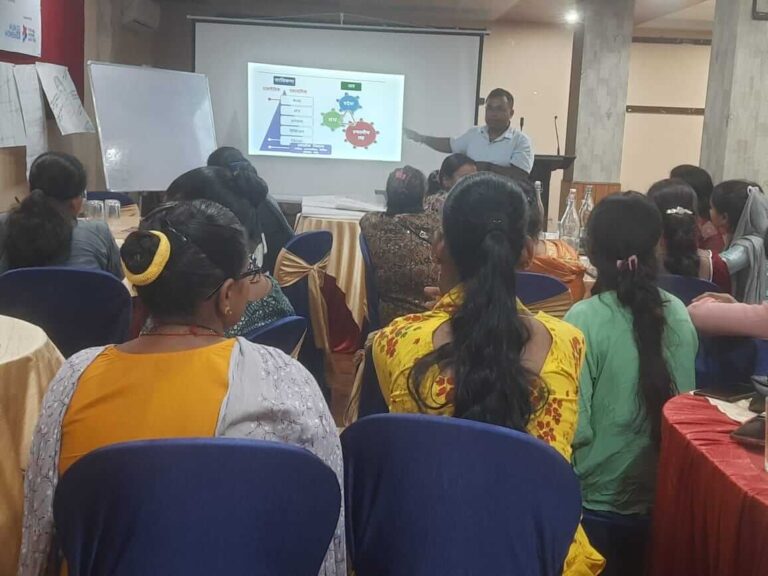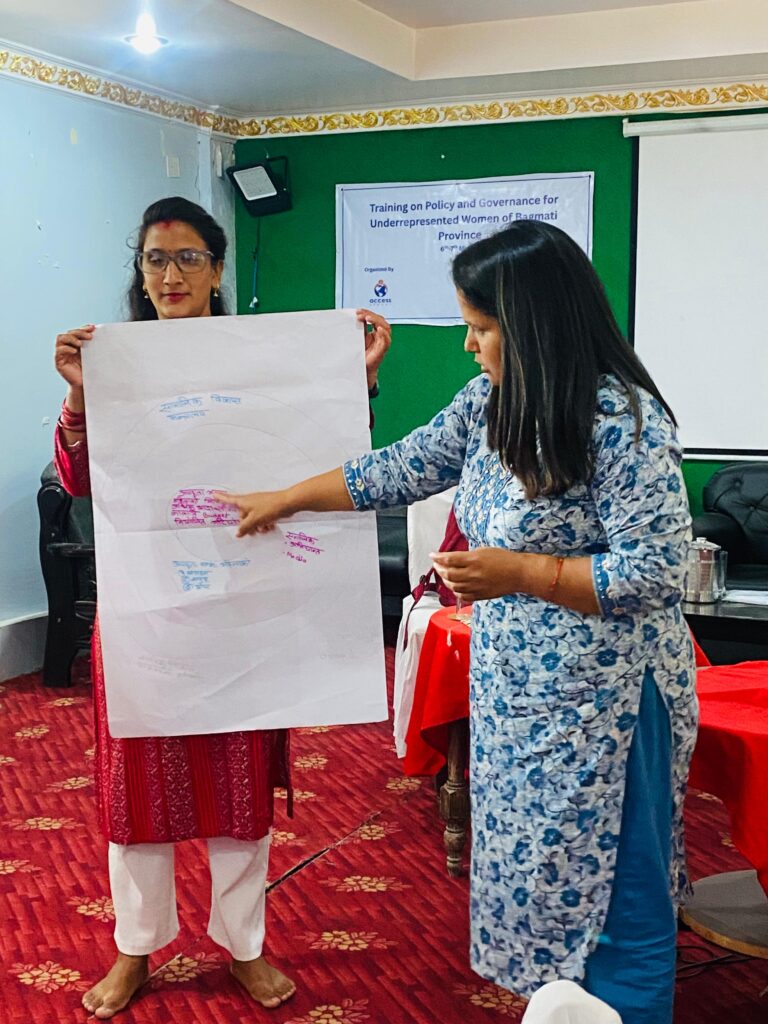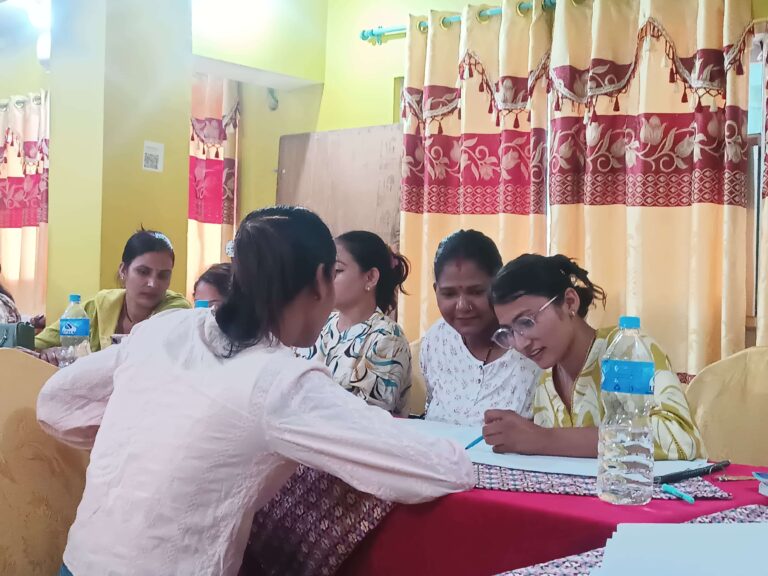Two-day training on policy and governance for women from marginalized communities conducted in 3 provinces
- Bagmati Province—Conducted in Hetauda on 6th-7th May, 2025
- Madhesh Province: Conducted in Janakpur on 10th-11th May, 2025
- Sudurpaschim Province: Conducted in Dhangadi on 14th-15th May, 2025
Access Planet Organization has been working for the capacity building, empowerment, and rights protection of youth and women with disabilities through advocacy, inclusion, and leadership since its establishment. In May 2025, with the financial support of UN Women, Access Planet conducted a series of three provincial-level trainings on Policy and Governance in Hetauda, Janakpur, and Dhangadhi. A total of 89 young women from marginalized communities, including Dalits, Madhesis, Indigenous groups, Muslims, and women with disabilities, actively participated in the program. The trainings aimed to strengthen participants’ understanding of leadership, constitutional rights, inclusive governance, feminism, disability laws, and advocacy skills.
Objective of the Training Program
- Enhance leadership skills of marginalized young women.
- Raise awareness about legal rights for women, Dalits, and persons with disabilities.
- Increase understanding of inclusive governance and civic participation.
- Strengthen advocacy skills for local-level social change
The trainings covered a comprehensive set of thematic sessions designed to build knowledge, critical thinking, and action-oriented skills. Common sessions across all three events included:
- Leadership and Why Leadership Matters
- Women’s Rights and Constitutional Provisions
- Act on the Rights of Persons with Disabilities (ARPD) 2017
- Structure of Nepal’s Governance and Inclusive Governance Principles
- Effective Advocacy and Campaign Planning
- Feminism and Gender (in Hetauda and Janakpur)
- Sex vs Gender and Gender Diversity (in Janakpur)
- Dalit Rights and Caste-based Discrimination (in Hetauda and Dhangadhi)
- Indigenous Peoples’ Rights (in Dhangadhi)
- Madhesi Women’s Political History and Participation (in Janakpur)
The training used Interactive and creative methods such as symbolic body mapping of leadership traits, problem tree analysis, clause matching, group debates, and Concentric Circles of Influence were used to help participants internalize the content. These hands-on activities enable participants to critically analyze issues like child marriage, Chhaupadi, gender-based violence, menstrual health, disability-inclusive infrastructure, and the economic empowerment of marginalized women. A major highlight of the program was the development of locally relevant advocacy plans that outlined strategies for engaging stakeholders, allies, and decision-makers. In the final action planning sessions, participants identified key areas for further learning, including public speaking, proposal writing, CEDAW, cybercrime, and right to information. They also selected topics for upcoming Netri Samwad debates and identified mentors from political, entrepreneurial, media, and government sectors, laying a strong foundation for continued leadership, advocacy, and long-term engagement within their communities.
Outputs
- Altogether, 89 young women with disabilities were trained through three trainings on leadership, gender, feminism, and laws related to women’s and disability rights in Nepal
- Participants learned about the structure of governance and the importance of inclusive political participation.
- The training provided information on constitutional rights and legal protections for marginalized groups.
- The young women developed advocacy plans to address local issues in their communities.
- Group activities and discussions helped participants understand real-life challenges and solutions
Image Gallery
